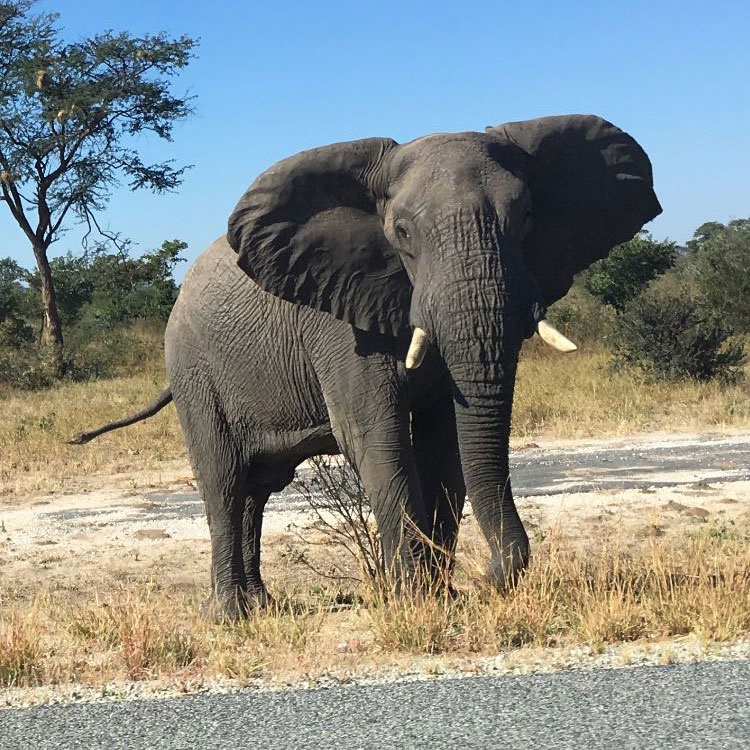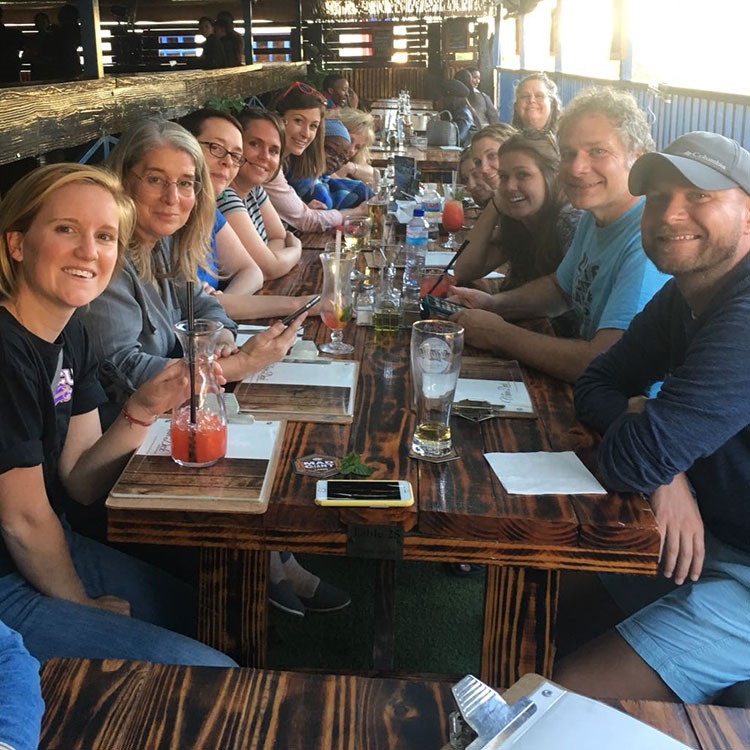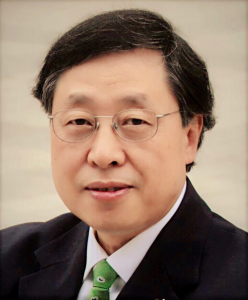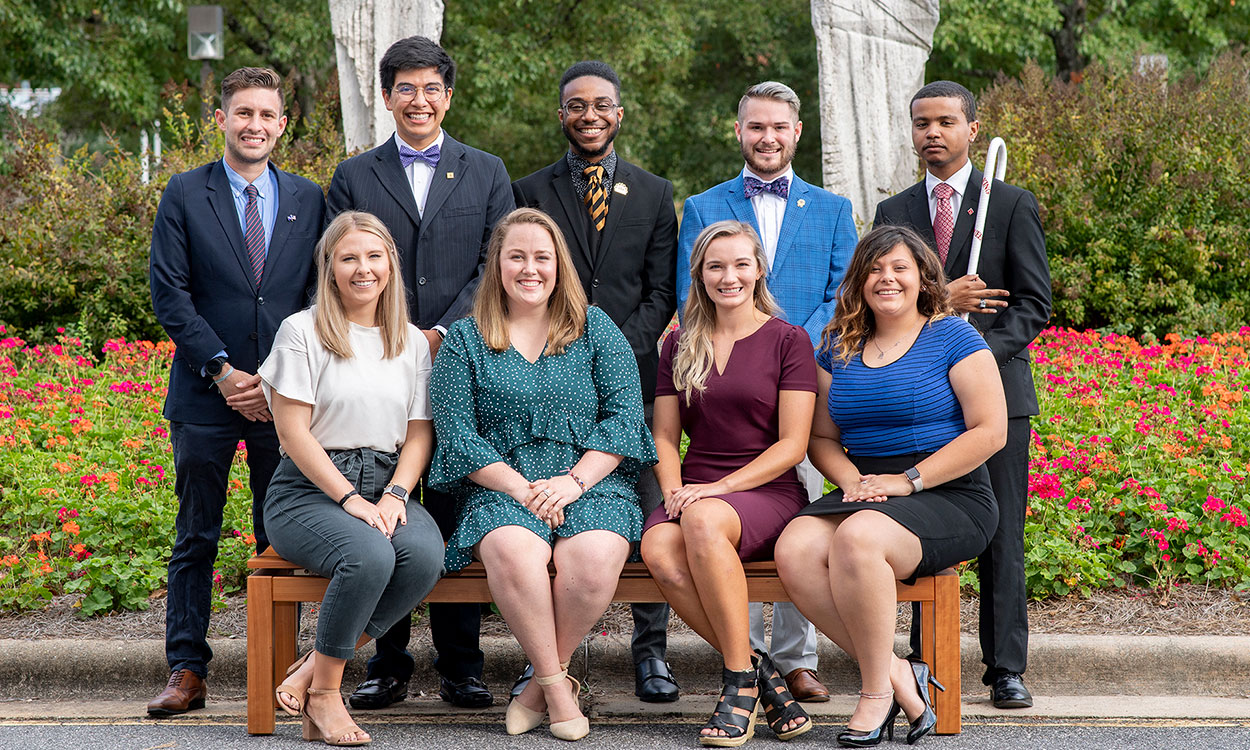Special education group continues participation in Botswana program
A recent trip to Botswana by a delegation of Western Carolina University faculty and students has helped forge a deeper relationship between the campus and that country, working to improve special needs services, here and there.
The Republic of Botswana, a country of about 2 million people in southern Africa, faces challenges in meeting the needs of students with disabilities, autism, deafness and blindness. The ongoing partnership with WCU is helping alleviate some of the obstacles, particularly in the fields of speech pathology, communication skills and special education.
The trip took place May 30 through June 28, with the group visiting eight schools in the Botswana cities of Gaborone, Francistown and Maun. While there, the three WCU faculty members and 12 students worked alongside Botswana teachers and students, and generally immersed themselves in the local environment.

A wildlife tour provided an opportunity to see a wild elephant, up close.
“We were able to go into classrooms. We conducted training sessions for teachers, presented workshops at the Autism Botswana Seminar, held at the University of Botswana, developed curriculum and also learned a great deal ourselves,” said Amy Rose, WCU assistant professor of communication sciences and a leader of the trip. “We learned some basic phrases in the Setswana language, went on wildlife tours and boat rides, ate the traditional foods and visited people in their homes and interacted with communities.”
The trip was organized through WCU’s Department of Communication Sciences and Disorders and Special Education Program and coordinated through the Republic of Botswana, and its Department of Special Support Services and Ministry of Basic Education. Funding was provided by the Fulbright-Hays Group Project Abroad of the U.S. Department of Education.
The partnership began in 2015, through an already-existing institutional and cultural exchange program between North Carolina and Botswana, when Rose made a fact-finding visit. That s visit was followed the next year by another, this time expanded to additional WCU faculty and students with a service-learning itinerary. In 2017, it was a stateside visit by educators and cultural ambassadors from Botswana, who spent a week at WCU meeting with faculty, attending workshops and holding public forums on campus.
Trish Davis, a clinical supervisor and instructor in WCU’s Department of Communication Sciences and Disorders, described how the university’s students benefited from the recent visit, providing an opportunity to create curriculum for schools there and bolster understanding of other cultures and education methods.
“They come to understand how education outside the United States is different,” Davis said. “They become aware of different teaching methods and other ways to be effective, how resources and culture influence teaching. On this visit, (WCU students) quickly learned you don’t need a ton of materials to be effective.”

The WCU delegation to Botswana enjoys an evening out.
The collaboration aids WCU service-learning goals and assists with many needs in Botswana, including developing communication tools, Davis said.
Karena Cooper-Duffy, a WCU professor of special education who helped facilitate the activities and workshops in Africa, said the WCU-Botswana partnership has continued to grow since 2015, with more people, media and organizations becoming involved. That now includes the World Health Organization, with the United Nations agency supporting comprehensive efforts for management of autism spectrum disorders.
“The name of the WCU-Botswanan project is ‘Reciprocal,’ which certainly proved to be true,” said Cooper-Duffy. “A speech pathologist with the government there said she knew people were coming to help, but she had never considered the experience could be helping them, that Botswana had something to offer and things to share.”
WCU participants worked hard to meet their established objectives, Davis said, which also required developing cross-cultural communication skills and being adaptive to another culture. That was a valuable skillset to gain and real-world experience to have, she said.
“The partnership is looking at several things for the future,” Rose said. “We have to prioritize needs, evaluate and hopefully get some sustaining funding. We hope to host a delegation from Botswana again at WCU next summer and perhaps another faculty and student visit there. We would like to create a training site in Botswana and establish a program for parents of children with developmental disorders that helps with initial training.”
For more information, contact Rose at ajrose@wcu.edu or 828-227-3289.

